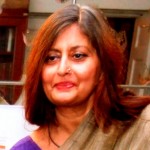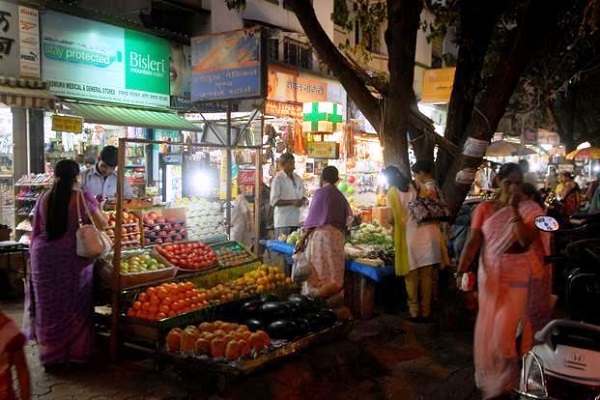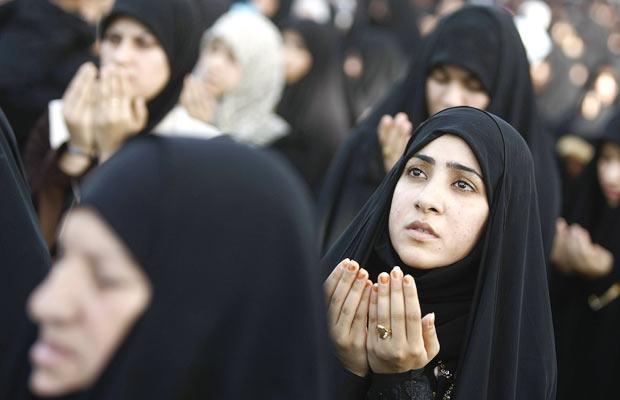Humra Quraishi wonders what it will take for us to break away from the strange stereotypes we associate with Muslims.
 In the last few years, I’ve attended several public meetings held in New Delhi that dealt with the growing despair amongst Muslims, and their constant dread of being profiled as terrorists, followed by denials of bail, tortures, biased police investigations and trials, and extra-judicial killings. Not to mention the daily discrimination in education, employment, housing and public services.
In the last few years, I’ve attended several public meetings held in New Delhi that dealt with the growing despair amongst Muslims, and their constant dread of being profiled as terrorists, followed by denials of bail, tortures, biased police investigations and trials, and extra-judicial killings. Not to mention the daily discrimination in education, employment, housing and public services.
Compounding this situation, rightly or wrongly, are the weird stereotypes that prevail about Muslims in India. That they breed like rabbits and eat meat at every occasion. That they don’t bathe. So often, I’ve been asked, “You really a Muslim? You don’t look like one!” What am I supposed to look like? Doing salaams or stuffing meatballs into my mouth, I suppose, if not cooking and eating biryani every day, or going out of doors on the arm of a bearded, achkan-clad, hatted man with a brood of squabbling children trailing me.
An average Indian Muslim’s lifestyle isn’t very different from that of his fellow Indians’. There is no difference, except for this – a deep sense of insecurity! Mind you, this does not come from you or me or other apolitical Indians, but from those who are at the very helm: communal politicians and their allies.
In my parents’ home, like in most Indian homes, dark realities were seldom discussed. At least, not openly, and definitely not in front of children. But what’s happening outside our homes cannot be brushed under the carpet for long, and children are very intuitive and sensitive to undercurrents of something amiss. As I write this, I remember how some snippets of whispered conversations would find their way to my ears, often on a late evening when my two younger sisters and I would lie sprawled under mosquito nets on our beds.
My grandfather, certain we were asleep, would sit discussing things with my grandmother, things such as the horrific rioting in one of the areas of Uttar Pradesh, and of Muslims getting killed or hounded by the PAC jawans. I was very young then, and these stories were difficult to come to terms with. To this day, those accounts of police brutality have stayed with me, imprinting themselves on my mind permanently as I saw for myself those same things taking place, frighteningly and frequently backed by a powerful political-police nexus.
Another reality lay right in front of us every summer, when we’d travel down to Shahjahanpur to spend the vacations with my maternal grandparents. It was here that I first saw acute poverty among Muslims. Around my nana’s ancestral home, an entire mohalla lay spread out, housing poverty-stricken Muslims, many of them would come to our home recounting not just stories of their poverty, but of so many insecurities of the worst kind. The Right-wing political mafia often called this township ‘miniPakistan’, because it largely comprised Muslims.
As a child, these things hit hard. As I grew up, it got harder to cope as I saw and sensed very early in life that I belonged to a minority community that faced some very obvious communal biases. Tragically, these realities have worsened in recent years. I didn’t have to be an investigative reporter to find this out. I didn’t even have to go into Muslim mohallas or bastis. I saw and heard and experienced it all right here, in our capital city.
Soon after the demolition of the Babri Masjid, it was traumatic to remove the nameplate from outside our home which, at that time, was situated in New Delhi’s high profile Shahjahan Road, a high-security VVIP area. Why did we have to remove it? Because it bore a Muslim name. There were constant rumours of mobs attacking Muslim homes. After all, during the anti-Sikh riots of 1984, the home of at least one senior Sikh bureaucrat was targeted in Lutyens’Delhi.
After the Babri Masjid demolition, I did an in-depth feature for the Illustrated Weekly of India on how Muslim children studying in the best public schools of the capital city had to hear snide comments, not just from their classmates but also from some of their teachers. The demolition had several Muslim mothers change their children’s names/surnames to ensure basic survival.
Several Muslim mothers from Ahmedabad, Malegaon and Hyderabad have told me, “The police pick our children up even if a cracker bursts in the area. They are sometimes released after weeks or months, but their names lie forever in police records, so they are picked up again, the next time there’s another crime in the area.” It’s well-known by now that young Kashmiris who step out of the Valley to study or work in different cities of this country, are immediately looked upon with suspicion by the local cops and given a hard time.
I don’t harbor any hopes from the often barbaric policing that happens in this country, but I do harbor hopes from fellow Indians who are determined to fight the system. I firmly believe that our social fabric is still intact because of apolitical men and women of this country, especially those who belong to the ‘majority’ community, and who can see and sense the divisive politics at work. They are doing their utmost to see that good sense prevails. Along the way, they are helping hundreds and thousands of innocents and the disadvantaged survive against all odds.
Humra Quraishi is a senior political journalist based in Gurgaon. She is author of Kashmir: The Untold Story and co-author of Simply Khushwant.



